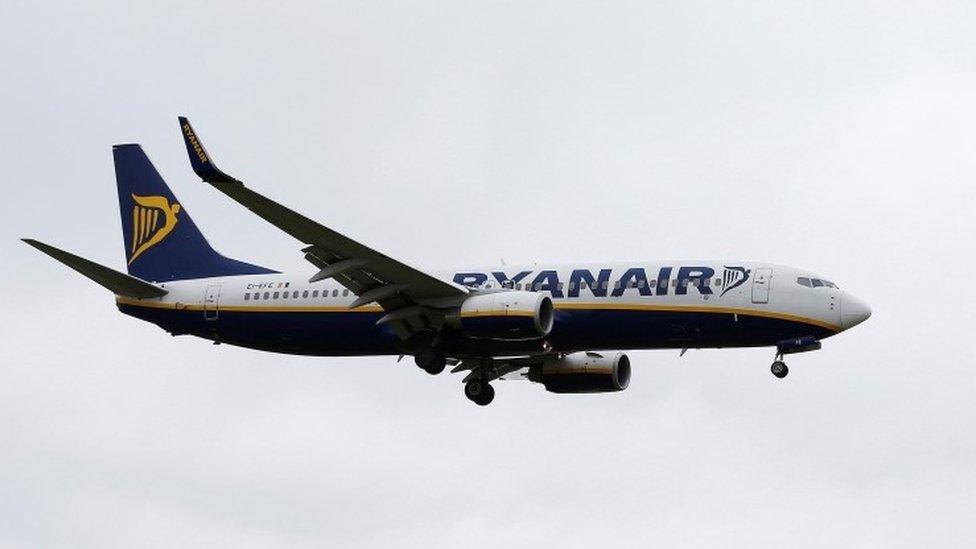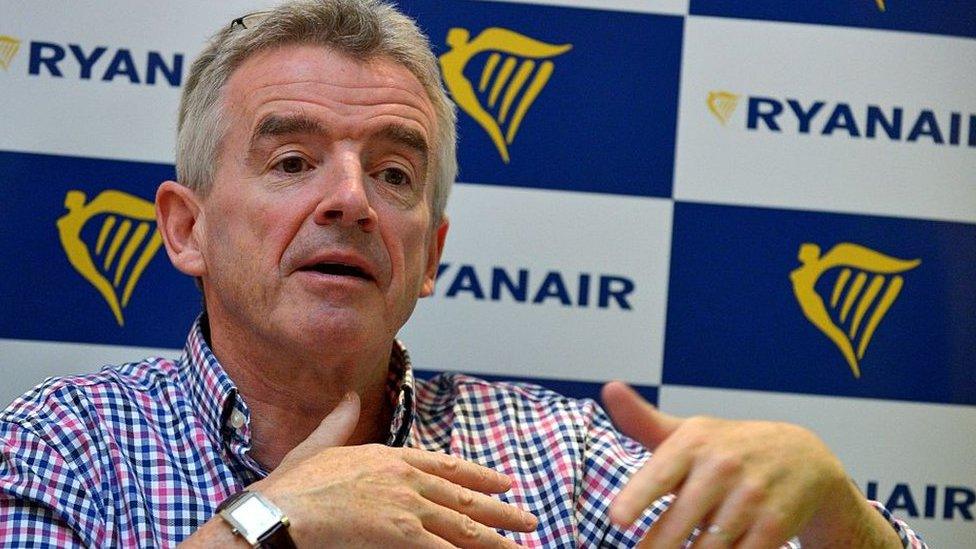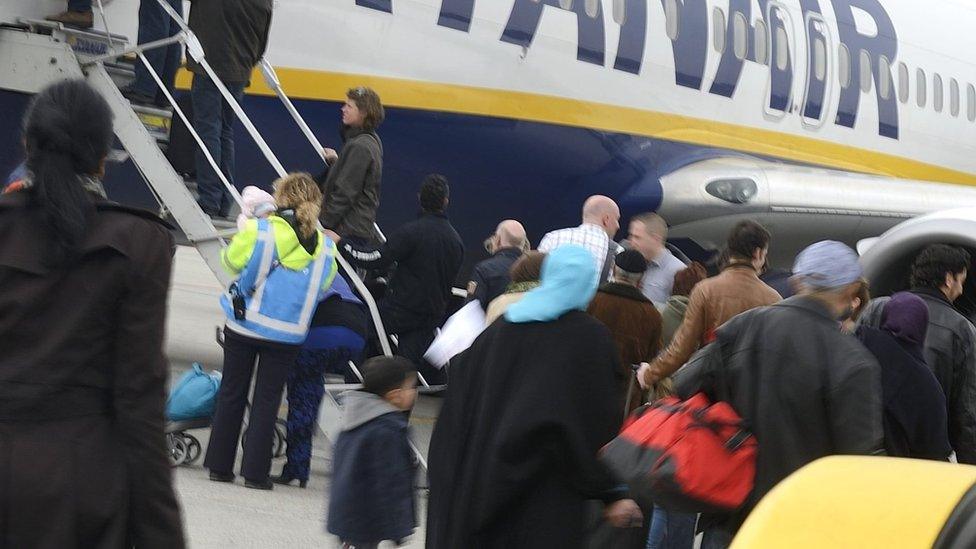Ryanair's brace position for a hard Brexit
- Published

"Modest" - not a word you would normally associate with Michael O'Leary of Ryanair. But that's how the chief executive describes his results for April to June, as growth of the airline climbed, albeit slowly.
The guidance is for revenue and profits to keep gaining altitude, with 10% more passengers this year, reaching 117 million over the full year to March 2017. That's eased from 18% passenger growth last year, and it continues to moderate to between 4% and 8% forecast growth over the next eight years.
With weakening demand, O'Leary's going after fare cuts of 8% in the first half of the year, rising to 10% over next winter. Lower fuel costs saving him 200m Euros, he can afford to pass that on.
He's making less on insurance and car hire, but more on priority boarding. Next innovation is Ryanair Rooms, due for launch in October, in an attempt to take on the hotel booking sites and AirBnB.
Pivoting away
In other news, Ireland's chief cheeky chappie is as reassuringly combative as ever. Norway has slapped a tax on passengers, so he's closing Oslo as a base and withdrawing half of the country's flights. French air traffic controllers keep striking, so he's wanting compensation, and other countries' controllers to handle overflights.
If that's to be NATS, the British air traffic controllers, he's warning it to sort out staffing problems which Ryanair claims are hurting its reputation for online arrivals. That's down from 93% to 87%, due to bad weather and problems with Stansted traffic control.
Moreover, the British electorate didn't agree with him on Brexit, so he's "pivoting" away from investment in further services for Britain. Unspecified routes to and from Stansted are to have services cut back, though not ended - yet.

It's not that the effect on aviation of the UK leaving the European Union are yet clear. But they could add to his costs, and he has other bits of Europe in which expansion can be more rewarding - Germany, for one.
Ryanair has third biggest market share in Europe's most populous country, as it does in France. In Italy, Poland, Ireland and Belgium, it's in number one position, with more than a quarter of passengers. It's also in Spain's top spot, with 18%.
Such is Ryanair's flexible business model - putting capacity in and pulling it out with much the same rapid-fire turnaround times as one of its Boeing 737s.
Operating from 84 bases and 200 airports in 33 countries, the UK's constitutional haggling may look like it could be ignored, while the airline gets on with what's happening in the rest of the continent.
But along with terrorism in the news, bad weather and air traffic strikes, Brexit is seen as "very negative". It clearly weighs on the airline's thinking, with uncharacteristically "cautious guidance and great uncertainty" about economic growth and the outcome of aviation co-operation.
France unsettled
I've just returned from France on a Ryanair flight. This was for leisure purposes rather than work, and so I can't say that I've been talking to all the people in the know or getting a feel for the disaffected youth of the suburbs.
But anecdotally, I found a France that is unsettled by the British referendum outcome, just as those who know it well say it is uneasy about other pressures for change.
The vote was a repudiation of far more than a French national interest, to maintain and deepen the European Union: it was a rejection of part of the French identity.

And given the nature of the campaign, which was more closely watched than British voters might think, the rhetoric from Britain did nothing to enhance the chances of a friendly negotiation. If Britain's going, the French want it out of the EU quickly, and are not up for doing it any favours.
One French politician I met had just heard of Boris Johnson's appointment as Foreign Secretary.
"C'est une provocation," she said, indignantly. She knows quite a few French people who live and work in London. They feel unwelcome, and want to leave.
If this Brexit uncertainty can be reduced, the French can then get on with the unsettling agenda of tackling home-grown terror, of a presidential election which pits far right chauvinism against pressure on the left for a significant retreat from the French social model of secure work and a shorter working week.
The pressure to become more Anglo-Saxon, at least economically, is growing, and not just from those perfidious Angles and Saxons of the UK and USA.